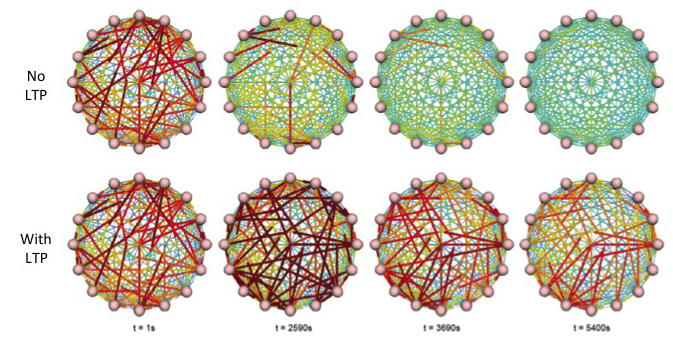It has long been known that sleep is critical for hippocampus-dependent memory consolidation – or in other words sleep is important for long lasting memories – but little is understood about what goes on at the synapses level for this memory consolidation to occur. A new research has the answer!

Blanco et al.
A research published in PLOS Computational Biology suggests that sleeping triggers the synapses in our brain to both strengthen and weaken, which prompts the forgetting, strengthening or modification of our memories in a process known as long-term potentiation (LTP).
Researchers led by Sidarta Ribeiro at the Brain Institute of the Federal University of Rio Grande do Norte, Brazil, measured the levels of a protein related to LTP during the sleep cycle of rats. The authors then used the data to build models of sleep-dependent synaptic plasticity.
The results show that sleep can have completely different effects depending on whether LTP is present or not. A lack of LTP leads to memory erasure, while the presence of LTP can either strengthen memories or prompt the emergence of new ones.
The research provides an empirical and theoretical framework to understand the mechanisms underlying the complex role of sleep for learning, which involves selective remembering as well as creativity.
